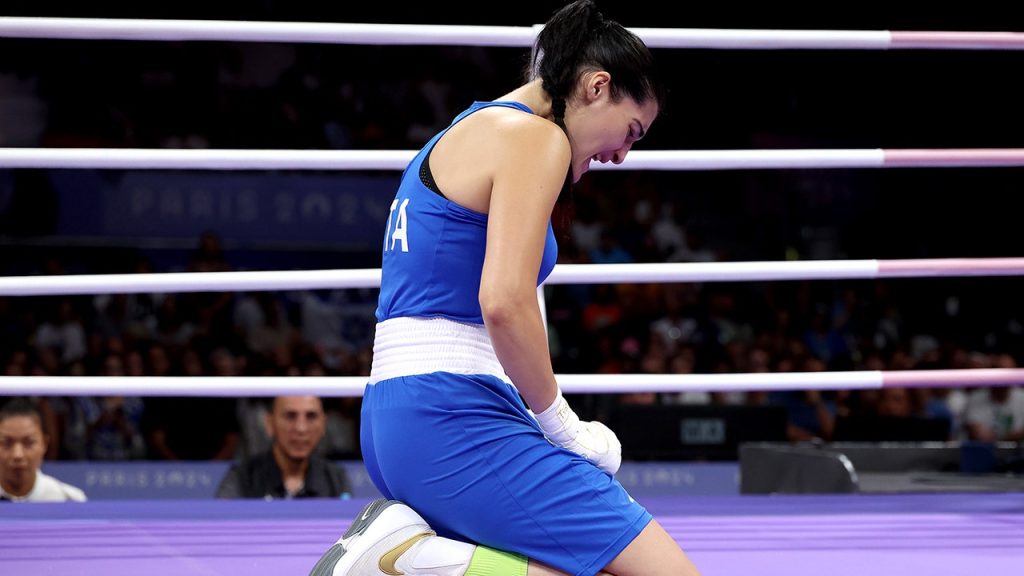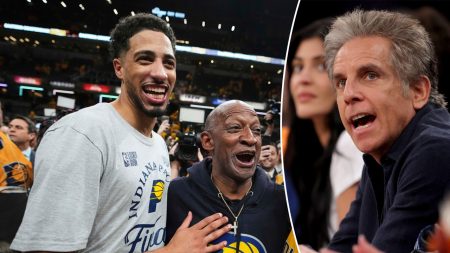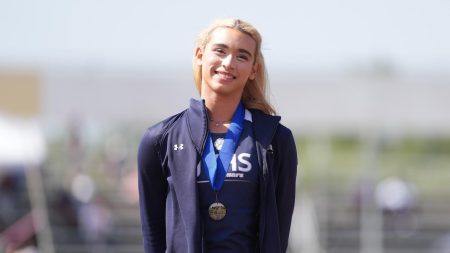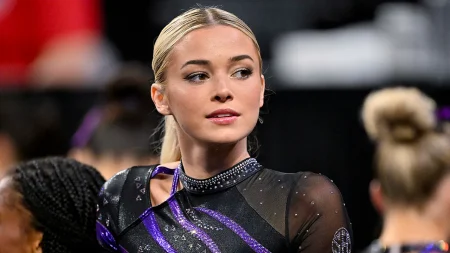Angela Carini, a 26-year-old Italian boxer, reclaimed her national title for the eighth time, marking a triumphant return to the ring after a controversial exit from the Paris Olympics. This victory, she declared, was her “revenge” for the incident that prematurely ended her Olympic dream. Carini’s Olympic journey was marred by a first-round stoppage against Algerian boxer Imane Khelif, whose eligibility to compete in the women’s category had been a subject of intense debate and scrutiny. The controversy stemmed from Khelif’s prior disqualification from the 2023 IBA World Championships due to reportedly possessing “XY chromosomes,” typically associated with male biology. Carini’s swift withdrawal from the bout after enduring several powerful blows to the head fueled the ongoing discussion about fairness and inclusion in women’s sports.
The Paris Olympics witnessed not only Carini’s heartbreaking withdrawal but also the triumph of Khelif, who went on to win gold in her weight class. Adding to the controversy, another gold medalist, Lin Yu-ting of Taiwan, had also previously failed gender eligibility tests, further intensifying the debate surrounding the IOC’s inclusion policies. The IOC, however, maintained its stance, defending the eligibility of both Khelif and Yu-ting to compete in the women’s categories, a decision that drew criticism from athletes, commentators, and the public alike. The fallout from the Olympics extended beyond the sporting arena, with Khelif filing lawsuits against prominent figures like Elon Musk and J.K. Rowling for their critical remarks on the situation.
The clash between Carini and Khelif became a focal point of the broader debate surrounding transgender athletes in women’s sports. Carini’s decision to withdraw, while driven by concern for her own safety and fueled by the emotional weight of competing in honor of her late father, inadvertently thrust her into the center of a complex and highly sensitive issue. The incident sparked a wave of support for Carini, with some, including American swimmer Riley Gaines, hailing her as a “hero” for taking a stand. Others criticized the IOC for its handling of the situation, arguing that allowing athletes who had failed gender eligibility tests to compete in women’s categories undermined fair play and the integrity of women’s sports.
Carini’s post-fight reflections revealed a mix of emotions. While initially expressing regret over her cold demeanor towards Khelif after the bout, she later clarified that her anger stemmed from the abrupt end to her Olympic aspirations. She also expressed sadness over the controversy surrounding her opponent, acknowledging the IOC’s decision and stating her respect for it. However, her recent victory in the Italian championships signals a renewed focus on her boxing career and a determination to move forward from the Olympic setback.
The Khelif controversy reverberated far beyond the boxing ring. Khelif’s subsequent legal actions against those who criticized her participation in the women’s category, including a French journalist, further escalated the debate and brought international attention to the issue of transgender inclusion in sports. These lawsuits raised questions about freedom of speech and the boundaries of acceptable discourse in the context of sensitive social and political issues.
Carini’s story exemplifies the challenges faced by female athletes in navigating the rapidly evolving landscape of competitive sports. Her experience underscores the complexities of balancing inclusivity with fairness, and the ongoing need for clear and consistent guidelines regarding the participation of transgender athletes in women’s sports. While her Olympic dream ended abruptly amidst controversy, Carini’s return to the ring and her recent national title victory demonstrate resilience, determination, and a commitment to her sport. Her journey serves as a reminder of the human stories at the heart of these complex debates and the personal impact of decisions made at the highest levels of sports governance.










